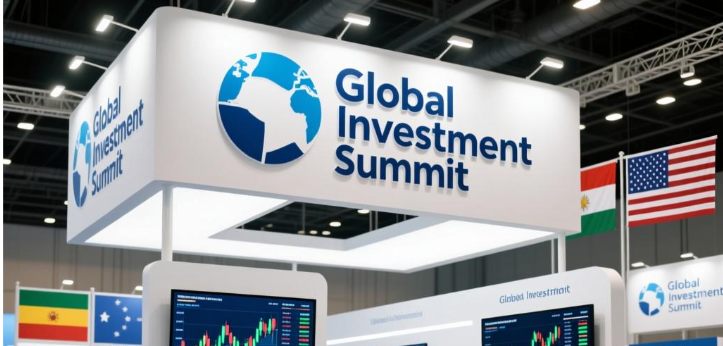On the dazzling stage of the Investment Expo, cutting-edge technologies, innovative concepts, and business models showcased their innovations, unfolding a magnificent panorama of the future business world. Through these exhibitions, we glimpsed the outline of the business world five years from now—a new landscape driven by technology, green and sustainable, experience-driven, and deeply integrated with online and offline ecosystems.
Technology Reshaping the Underlying Logic of Business
Artificial intelligence and blockchain technology will become core infrastructures for business operations. At the Investment Expo, AI-driven supply chain management systems were demonstrated, capable of real-time inventory optimization, demand forecasting, and even autonomous logistics route decisions. Five years later, these technologies will permeate the entire industry chain, including retail, manufacturing, and logistics. Companies will use AI to analyze consumer behavior data, achieving personalized marketing tailored to each individual. For example, a leading retail group significantly improved its store sales growth rate through an intelligent recommendation system; this model may become industry standard.
Blockchain technology will reconstruct trust mechanisms. In the cross-border trade exhibition area, blockchain-based smart contracts have achieved “second-level” settlement and supply chain traceability. Five years later, from food traceability to financial transactions, blockchain will eliminate information asymmetry and reduce trust costs. A biotechnology company uses blockchain to record the entire process of NMN raw material production, from planting to manufacturing. Consumers can verify the authenticity of the product by scanning a code. This transparent model may drive the upgrading of the entire health industry.
Green Sustainability Becomes a Barrier to Business Competition
Driven by the “dual carbon” goal, green technologies are moving from concept to reality. At the investment expo, exhibits such as Building Integrated Photovoltaics (BIPV) technology and hydrogen energy storage systems attracted significant attention. Five years from now, green buildings, low-carbon transportation, and the circular economy will become new standards for businesses. For example, a commercial complex has achieved energy self-sufficiency through BIPV technology, with surplus electricity fed back into the grid. Its “zero-carbon operation” model may inspire others to follow suit.
On the consumer side, a growing awareness of green consumption is forcing companies to transform. A health brand has reduced its product’s carbon footprint by using natural plant extracts and optimizing production processes. This “green premium” strategy helps it capture the high-end market. Five years from now, ESG (Environmental, Social, and Governance) performance may become a key indicator for corporate financing and brand partnerships.
The Experience Economy Reshapes Consumption Scenarios
In the experience zone of the investment expo, technologies such as virtual reality (VR) fitting mirrors and holographic projection exhibition halls immerse consumers. Five years from now, these technologies will be deeply integrated into retail, cultural tourism, education, and other fields. For example, a luxury brand has created a “virtual flagship store” using VR technology, allowing consumers to try on and customize products online. This “meta-universe consumption” model may redefine the shopping experience.
Offline commercial spaces are also transforming into “experience centers.” A commercial complex has introduced innovative formats such as camping hot pot restaurants and family-themed stores, combining dining with entertainment and social interaction to extend consumption time. Five years from now, commercial complexes may become “urban social hubs,” continuously attracting foot traffic and creating added value by hosting art exhibitions, industry forums, and other events.
Online-Offline Integration Fosters a New Ecosystem
The “6+365” exhibition model has been successfully validated at the investment expo—extending the influence of offline exhibitions through online platforms to achieve “never-ending” trade connections. Five years from now, this model will expand to more fields. For example, a health brand offers personalized health management solutions through an online platform, while its offline stores focus on high-end experiential services, forming a closed loop of “online traffic generation + offline service.”
Meanwhile, digital twin technology will drive more refined business operations. A manufacturing company has significantly reduced costs annually by using digital twins to simulate its production line. In five years, this technology may be widely applied in retail, logistics, and other fields to achieve optimal resource allocation.
The business world five years from now will be a new ecosystem interwoven with technology, sustainability, experience, and integration. In this transformation, only companies that keenly observe trends and continuously innovate will stand at the forefront. Shanghai Fumo Exhibition Service Co., Ltd., deeply rooted in the exhibition industry, leverages its professional planning and resource integration capabilities to help companies accurately connect with future business opportunities.







